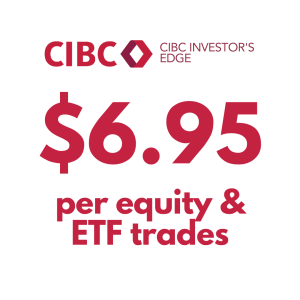
The introduction of the Tax-Free Savings Account (TFSA) in 2009 was more than a gift from the Canadian Government. Canadians can now make investments without worrying about the burden of taxes. TFSA mutual funds, however, introduce a new class of benefits to consider.
You can invest in a wide range of investments instead of a few stocks and bonds. What’s more? You can withdraw money from your mutual funds TFSA tax-free. It’s a good way to grow a diversified investment portfolio with little tax impact.

Table of contents
- Can TFSA be invested in mutual funds?
- What is the Difference Between a High-Interest Savings Account and a TFSA Mutual Fund?
- Are Tax-Free Mutual Funds Good?
- Do you pay tax on mutual funds in TFSA?
- Who Has The Best TFSA Rates In Canada?
- What Are The Top 5 TFSA Mutual Funds?
- What Are The Advantages Of Buying Mutual Funds In TFSAs?
- Should you invest in TFSA mutual funds?
Yet, if you’re considering putting mutual funds into your TFSA, it’s best to pick options that offer higher interest and other perks. Read on to discover the top five TFSA mutual funds in Canada and what makes them exceptional.
CIBC Investor’s Line Offer
Up to $6.95 per online stock or ETF trade. Plus, there’s no minimum account balance.
Can TFSA be invested in mutual funds?
Yes, you can invest in mutual funds through your TFSA. In fact, you can invest in an array of investments through a TFSA, including stocks, bonds, GICs and more.
What is the Difference Between a High-Interest Savings Account and a TFSA Mutual Fund?
A high-interest savings account is a ‘safe’ way to save your money for a while. Compared to a regular savings account, the interest you earn after the saving period is quite high. In addition, a high interest savings account is a great place to put an emergency fund. This is because it’s relatively easy to withdraw. Most financial institutions usually offer an interest rate of about 1% to 1.5%. Others take it a step further. Some offer a higher interest rate, sometimes even as high as 3%, particularly for promotions.
Let’s assume you put $20,000 into a high-interest savings account (HISA) with a 2% interest rate. At the end of the year, you’ll have $20,400 (that is if you didn’t touch the money at all).
You may also want to regularly check up on your account as the interest may change periodically. The initial interest rate may have been promotional and eventually disappears after a few months. Also, note the interest from your high-interest savings account incurs taxes. This is because a high interest savings account is not tax sheltered like a TFSA.
On the flip side, TFSA mutual funds allow you to invest in mutual funds through your TFSA. The interest and investment income from the mutual funds is not taxable even though you’d have to pay a management fee. But what are these mutual funds? Mutual funds are a collection of securities. For example, bonds, assets, stocks, and equities. Investing in mutual funds brings you into a circle with other investors. Although you have to pay the management fees, you are able to enjoy a higher ROI as opposed to using a HISA. You may want to consider using a mutual fund TFSA for long-term investments.
To summarize, both HISA and TFSA mutual funds both yield investment income. However, income earned in a HISA is taxable whereas income earned in a TFSA is not. You can withdraw money from both investments at any time, but it is easier to withdraw from a HISA since it’s not locked into an investment.
Related Reading: How to Withdraw Money from TFSA
Are Tax-Free Mutual Funds Good?
Yes, they are. First, you don’t have to pay tax on gains earned on mutual funds investments within a TFSA. In addition, TFSA mutual funds are diversified and provide access to a wide range of investments. In other words, you don’t have much to lose!
Moreover, a professional manager makes every decision for the good of the investment. In exchange for the management expense ratio (MER) fee, you can focus on other aspects of your investments while the management team makes decisions within the mutual fund.
Do you pay tax on mutual funds in TFSA?
No, investment income earned on mutual funds within a TFSA are not taxable. This is because investment income is tax sheltered in a TFSA. If you were to invest in mutual funds outside of a TFSA, all capital gains, dividends and interest would be taxable.
Related Reading: TFSA Contribution Limit By Year to 2023
Who Has The Best TFSA Rates In Canada?
A lot of banks offer TFSAs at fair rates, but only a few of them stand out. The best on the list here is the award-winning EQ Bank TFSA, but we’ll look at three others as well.
| Bank Product | Interest Rate |
| EQ Bank Tax-Free Savings Account | 3% |
| Steinbach Credit Union TFSA | 3.75% |
| CIBC TFSA Tax Advantage Savings Account | 3% |
| Alterna Bank TFSA eSavings Account | 2.5% |
1. EQ Bank Tax-Free Savings Account
Ever seen a TFSA offer with a 3% rate, zero transfer fees, monthly fees, and transaction fees? Asides from the absence of fees, they also calculate your interest daily and pay you monthly.
You don’t need a minimum balance to open the savings account, so you can easily open one free of charge. The EQ Bank TFSA is CDIC (Canadian Deposit Insurance Corporation) insured. So you can rest assured your money is safe.
The only downside here is that the EQ Bank TFSA is not available in Quebec. However, it is available in all other parts of Canada.
2. Steinbach Credit Union TFSA
The Steinbach Credit Union TFSA offers about a 3.75% rate on average. However, there are transaction fees of $3 that apply. Asides from the transaction fee, interest is calculated monthly and paid annually. In addition, the exact amount of interest paid depends on your balance and how long it’s been in the account.
There are zero monthly and e-transfer fees, and the offer is open to residents that are 18 years and above. The account is also provincially insured.
3. CIBC TFSA Tax Advantage Savings Account
The CIBC TFSA provides about a 3% rate on your deposits. However, this current rate seems to be promotional and would change to 0.75% by March 2023.
E-transfer fees cost about $1.50, but there is a zero monthly transaction fee. CIBC is CDIC eligible and they calculate your interest daily and pay monthly.
You don’t need a minimum balance to get the account running. Also, you qualify for the account if you are a Canadian resident of 18 years and above.
CIBC Investor’s Line Offer
Up to $6.95 per online stock or ETF trade. Plus, there’s no minimum account balance.
4. Alterna Bank TFSA eSavings Account
Alterna Bank TFSA eSavings Account provides a rate of 2.50% and is only available online. There are zero e-transfer, monthly and transaction fees. Also, you can easily transfer funds through your mobile app.
Alterna Bank is CDIC insured and it calculates your interest daily and pays monthly. You don’t need a minimum balance to get started, and your transactions are safe and secure.
Related Reading: TFSA vs RRSP: Where to Put Your Money
What Are The Top 5 TFSA Mutual Funds?
Many banks and financial institutions in Canada offer TFSA mutual funds. However, the below ones stand out. Let’s break them down and see why they made the list.
1. ScotiaFunds Portfolio Solution
ScotiaFunds Portfolio Solution is one of the many investment packages from Scotiabank. It allows users to grow their Tax-Free Savings Accounts with diverse mutual funds. This portfolio solution helps you become an investor without doing much work. The team manages your funds and fast-tracks the achievement of your investment goals.
ScotiaFunds exposes you to various categories of assets, including;
- Various sectors of the economy to invest in.
- Places to invest in, including opportunities outside Canada.
- Companies to invest in, whether large or small.
- Professional portfolio managers to manage your investments, and
- The right strategy you need for your investment.
2. TD Mutual Funds TFSA
TD stands for Toronto Dominion Bank and they are a reputable bank in Canada that has stood the test of time. They provide top-notch banking services and investment opportunities for their customers.
TD Bank offers both TFSAs and mutual funds for TFSAs. These mutual funds could be stocks and other money market products. Its returns are usually dividends or capital gains. A professional manager is assigned to manage your funds and there are risks involved.
The bank offers a pre-authorized purchase plan that guarantees flexible savings options for you. You’d need to pay a management fee that may include special taxes if you apply for a short-term withdrawal. If you set and forget your investment for a pretty long time, you may not be charged at all.
3. HSBC Mutual Funds TFSA
The Hongkong and Shangai Banking Corporation (HSBC) is a multinational bank. It is among the largest banking institutions in the world. HSBC provides one of the best banking services and has been around for quite some time. HSBC offers TFSA packages and investment options for mutual funds.
One special thing about the HSBC mutual funds package is that you can invest your income in mutual funds. You can invest as little as $25 to $500 and get returns monthly. You also have the opportunity to manage the investment yourself, or over the phone. Management fees are as little as $0.05 to 0.06%, and the higher amount you invest, the lower the fees.
4. Tangerine Portfolio
Tangerine Portfolio is a provision by the Canadian Tangerine Bank for mutual funds investment. Mutual funds here are not CDIC insured. The payable fees are affordable and they include:
- Administrative fees or operating costs
- Trading costs
- Management fee
Tangerine Investment Management Inc. manages these mutual funds. Your gains are not taxable and their savings rates are quite high.
5. CIBC Mutual Funds
CIBC Portfolio Solutions offers two customized programs to help you invest in mutual funds through your TFSA. These include CIBC Managed Portfolio Services and CIBC Personal Portfolio Services. The first is an all in one solution available to any and every Canadian. Whereas the second is only available to households with $100,000 or more to invest. The latter takes a more diversified approach.
CIBC Investor’s Line Offer
Up to $6.95 per online stock or ETF trade. Plus, there’s no minimum account balance.
What Are The Advantages Of Buying Mutual Funds In TFSAs?
There are many benefits you’d get from buying mutual funds in a tax-free savings account. These benefits include:
- Diversity of investments. Your assets and securities are in various classes of the economy, countries, and companies. You are not limited to one stream of profit and if one investment suffers, another will thrive.
- Less work as an investor. You are relieved from the stress of researching and making investment decisions as a professional manager is available to you. They manage your investments at affordable costs. Furthermore, some institutions allow you to personally handle your investments should you ever want more control.
- No tax. Withdrawing your gains will not incur any taxes whatsoever because TFSAs are sheltered from investment income tax.
- Save. Mutual funds allow you to have long-term investments that may help you save for retirement, a home purchase and much more.
Should you invest in TFSA mutual funds?
Of course, you should! However, it would be best if you did proper research before going into any kind of investment. Remember that investing in TFSA mutual funds comes with its own risk. Every manager expects you to be aware of the risks. You may also want to consider the fees involved as they eat into your overall profits. In addition, be sure to consider your personal financial goals before investing in TFSA mutual funds.
Read More: How to Invest in Mutual Funds in Canada

